In Conversation is a feature in which the senior staff talk about a record we’ve been listening to. Not exactly a review, it’s pretty much exactly what it says on the tin: two music nerds having a conversation about an album with all the tangential nonsense, philosophical wanking, and hopefully insightful commentary that implies. They absence makes the heart grow fonder, and that certainly seems to be the case with the new album from a beloved futurepop making their return after a decade long absence…
Neuroticfish
A Sign of Life
Self-released
Bruce: So, when we chatted about Neuroticfish about three years ago, the running theme was the reappraisal of millennial futurepop a decade on. After years of rote aggrotech and dancefloor “anthems” which delivered plenty of beats but little in the way of songcraft, going back to the big melodic choruses crafted by the likes of Sascha Klein felt like a breath of fresh air. Since then, releases by Assemblage 23, Xenturion Prime, and Syrian amongst others have all kept those now-classic sounds in the mix and in the conversation, occasionally turning them to some new purposes. I guess what I’m saying is that it feels as though the pump’s been primed for the first Neuroticfish LP in ten years quite a bit, to the point that expectations (or at least mine) are significantly higher than they would’ve been a relatively short time ago. As a longer-term fan than myself, what are you looking for in a Neuroticfish album in 2015, and how does A Sign Of Life measure up to that standard?
Alex: Well, the weird thing was that I was a casual NF fan for years. It wasn’t until the project was well into hiatus that I got super into 2005’s Gelb and realized they might have made the objectively best futurepop album (it’s true, fight me). With the comeback album my hope was that they’d be able to nail the timeless quality that album achieved through songwriting, production and that idiosyncratic lyrical style that was equal parts slightly-off ESL and heart-on-the-sleeve confessional. That last bit is especially important to any assessment of Neuroticfish. I remember talking to homeboy Adam from amodelofcontrol.com during NF’s set at Resistanz a few years back and realizing how many of their songs had wormed their way into our collective feels-zone. So yeah, what I wanted was for them to sound like a slightly updated version of the band from Gelb and holy shit, they pretty much nailed it.
Now before we get too far into it, it’s super important to note that half the reason this album is as good as it is is probably attributable to Sascha’s longtime collaborator Henning Verlage, the producer and programmer who makes those Unheilig and Blutengel records so smooth to listen to. That guy is a certified expert in the studio and his fingerprints are all over A Sign of Life. The idea of futurepop as a genre is kind of antiquated at this point, but I’m totally comfortable calling this a modern record in the style beyond the obvious nods to EDM that pop up here and there. Like, it’s astonishing how this can sound exactly like the band who went inactive in 2005, and still not sound dated at all, especially working in such a specific time-and-place musical style. Do you get that from it?
Bruce: First of all, no, you will not manage to use an awesome new futurepop album as part of a devious ploy to get me to accidentally praise Blutengel. Not happening, pal. Secondly, yeah, the production feels right up to date…but I think you’re burying the lede as far as the idea of futurepop feeling “antiquated” is concerned. Futurepop always placed a priority on squeaky clean, high-gloss production, and what little production tics are required to keep a record in this genre up to snuff obviously isn’t too much of a task for Klein and Verlage. But I think what has changed since 2005 isn’t just the addition of futurepop to the lengthy list of genres and styles contemporary producers can sample from or dabble in, but that with ten year’s distance the criteria for futurepop has shifted so that we now evaluate it not on the basis of sounding “contemporary” or, as its moniker suggests, “futuristic”, but on the basis of sounding like futurepop. If I go into a dark electro or, say, power electronics record in 2015 I’m not worried about whether it’s informed by the most recent microgenres or production tricks, but how it measures up to the individual histories of those sounds.
What’s great about A Sign Of Life (and, really, Neuroticfish on the whole) is that it’s capable of seizing upon this exact type of discussion. While Gelb‘s “Waving Hands” reflected on the relationship between Klein and his listeners with astonishing emotional clarity, A Sign Of Life gives us “Is It Dead”, in which the value of working in a field whose vital signs are constantly in question. Sascha laments that “all the usual suspects do not come to play”, and isn’t sure if he’s contributing anything other than slavish devotion to a stagnant form: “Is it wrong or not to last, that I worship all the idols from my past? Is it sad to move on?”. Meanwhile, piecemeal sampling spells out the same discussion that’s been pinging back and forth across clubs and the Internet for decades: “Electronic Body Music…is…dead.” “What?” “Are you crazy?” Clever stuff, to be sure.
That raises one of Neuroticfish’s strengths which I think A Sign Of Life excellently showcases: songs which have the emotional grandeur (and occasionally ponderous tone) we’ve come to expect from futurepop, but which are grounded in much more real and concrete situations and experiences than the vagueries of betrayal, anguish, rapture, and all of the other states often reduced to an abstract poetic checklist in other bands’ work. What’s your read on how A Sign Of Life fits into Neuroticfish’s thematics?
Alex: Well, Sascha tends to write a lot of songs about identity, usually defining his own in opposition to some external thing or person. There’s a few of those here, specifically “Opposite of Me”, which I’m sure you don’t need a roadmap to figure out. I also think two of the album’s really cracking dance tracks “Former Me” and “Behaviour” fit nicely in with classics like “Prostitute” and “I Never Chose You” where he seems like he’s addressing himself in the third person. He also has “The Creep” which is more directly about some kind of self-loathing, and is genuinely pretty affecting in spite of having some awkward lyrical choices (“I’m a freak/And a bad imposter” is kind of a weird thing to hear anyone sing any way you slice it). He also has a couple tracks like “Silence” and “Agony” where music or sound is a metaphor for emotional turmoil, a trope he used to hit on occasionally in some of his earliest material, like “Music for a Paranormal Life”.
You brought up Tom Shear a little earlier and I think Neuroticfish maps well onto Assemblage 23 in terms of having these really strong throughlines lyrically and thematically, where a song is entirely built around one central idea and isn’t just a collection of loosely connected thoughts and words that sound good. Like, I know what every single song on A Sign of Life is about, and they’re all these relatable universal feelings about wanting validation in some sense or another. Considering that I couldn’t tell you what half the music I listen to is “about” in anything more than a broad sense most of the time, that’s kind of impressive.
And that’s kind of the secret with NF, no matter how overwrought and sentimental they get, it always feels really genuine and not forced. A lot of other performers probably couldn’t squeeze the same amount out of a couplet like “Somebody help me/I need to breathe/I need to speak/Somebody help me” on “Somebody”, but damn, Sascha makes it sound like he’s actually asking someone, anyone for help. He never half-asses it and never fakes it, and that’s kind of rare, even in a genre that routinely does the whole soul-laid-bare thing. As someone who comes to them late do you get that feel? I’m curious if you have to have listened to them through a miserable break-up to relate on that level or if it really is as ubiquitous a feeling as I think it is.
Bruce: Heh. I’d almost say just the opposite: that the plain-spoken nature of the emotions of A Sign Of Life make it a lot more easy to identify with. I’ve been settled down for quite a while, but what I remember about the pits of post-breakup despair was that just about any song was enough to send you spiraling off the edge, regardless of quality or even subject matter. The most banal treacle suddenly seemed full of meaning and pathos. I might not have Neuroticfish’s music pinioned to a specific dark patch in my life, but I’d like to think that speaks to the effect that it does have on me. Gelb‘s “Suffocating Right” felt incredibly real and emotionally cutting, and here, “Somebody” is, as you point out, a testament to Sascha’s credibility as a frontperson. Closer “The Illusion Of Home” feels all the more pressing for its juxtaposition of desperate need and absence (and, if I’m not mistaking my guess, of abduction and psychopathy) with a classic rush of futurepop leads and tightly sequenced rhythms.
Speaking of the latter, we haven’t really talked much about the specific approaches to melody and song construction taken here. As you perhaps alluded to above, A Sign Of Life does very much feel like a continuation of Gelb‘s canny ability for not losing its focus on immediate melodies no matter how grand its dancefloor programming becomes. “Agony” and “Former Me” were both locked into my head after their first spin, and Klein once again demonstrates his ability to offer a great clutch of vocal melodies (despite its modest range, his voice remains especially powerful in its clarity and depth) to cinch in alongside big leads. How do you think this record measures up musically to its predecessor, and how do you think it affects the larger picture of what Neuroticfish is about as a band?
Alex: Neuroticfish has been good with weaving melody and composition into big dance tracks right from the jump. Go back and listen to No Instruments songs like “Close” and “Mechanic of the Sequence”, both of which are amazing dancefloor tracks built around simple but effective leads. A Sign of Life is a lot less raw than those 20 year old songs, obviously, but Sascha’s songwriting still reflects that kind of prioritization. When the track drops mostly out during the first chorus of “Behaviour” you get that this song, with all these different interlocking synth parts, is still built around a simple, easy to hum chord progression. It’s arrangement 101 stuff, but hey, why not do what works and do it well? Neuroticfish writes good catchy tunes and renders them really well on record, it doesn’t have to be more complicated than that.
You know, I gotta admit I wasn’t expecting this record. I had heard a few tracks like “Silence” and “Former Me” and thought “Oh hey, Sascha can still bang out a club tune” but I really didn’t think he was gonna put out an album on the level of his best stuff from 10 plus years ago. Just listening to it and writing about it has really brought the strengths of the band into sharp relief for me, and of futurepop in general I think. There was a tendency back in the day to reduce the style of bands like this to “goth trance” or some such other snarky tag, but how many EBM or synthpop acts in 2015 put out records this fully realized, this smartly programmed, with this many hooks? It’s good stuff, and ended up scratching an itch for a style that I didn’t even realize I was craving. Big recommendation.

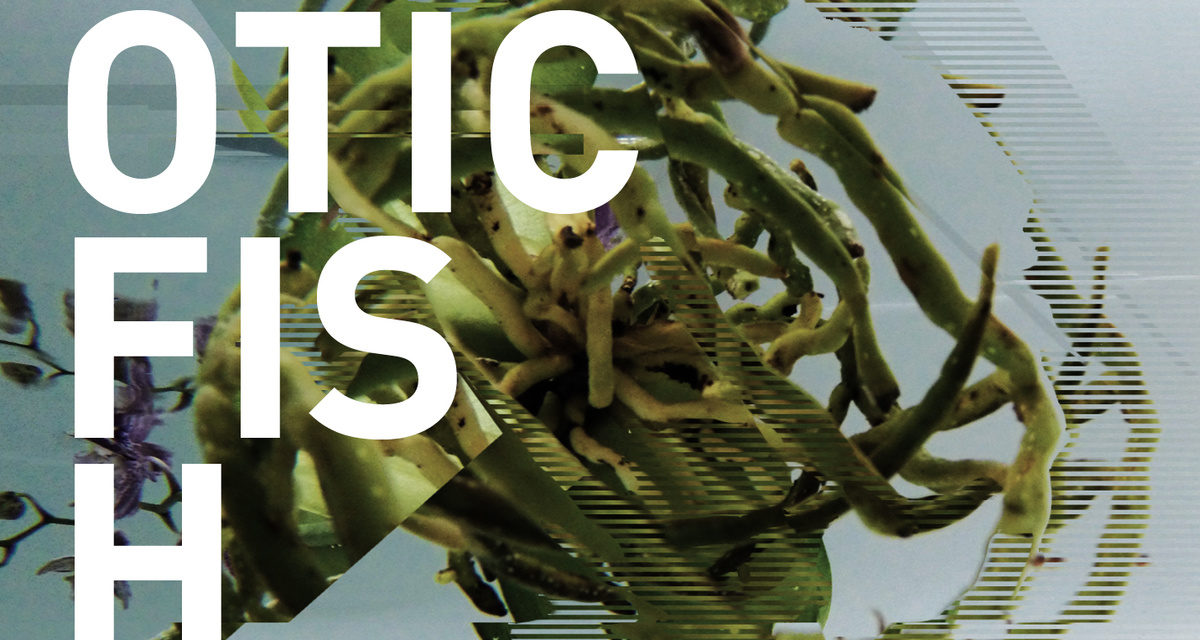
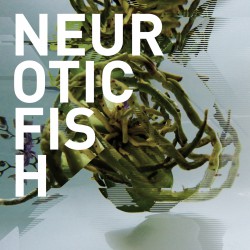
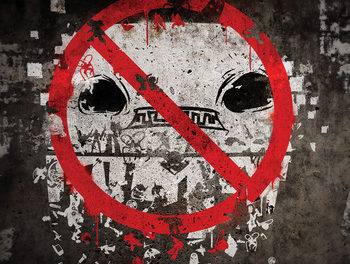

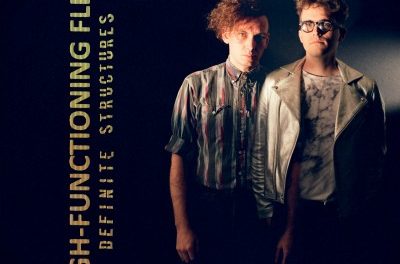
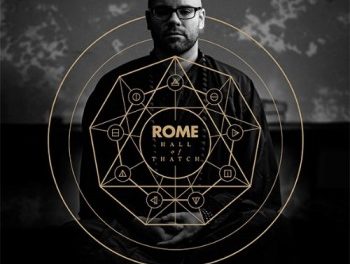
Good stuff. I was just thinking about this topic the other day. Given the treasure trove of releases so far this year (mind.in.a.box, Neuroticfish, Eisfabrik, X Marks the Pedwalk), the oft repeated claim that futurepop is over, usually by old-school industrial fans, seems wrong. I suspect this is the year we realize futurepop wasn’t just a fad and is here to stay, though it will likely continue to evolve as industrial sub-genres always have. VNV releasing a classical album certainly seems to support that.
I’ve never actually been a big fan of the “futurepop” moniker, nor the whole industrial name game as a whole. And Neuroticfish seems to self-classify as EBM anyways given all the “EBM is dead” lyrics. I enjoy good music, no matter the label.
You didn’t mention my favorite track on the album: “Caliban.” That song slays me.